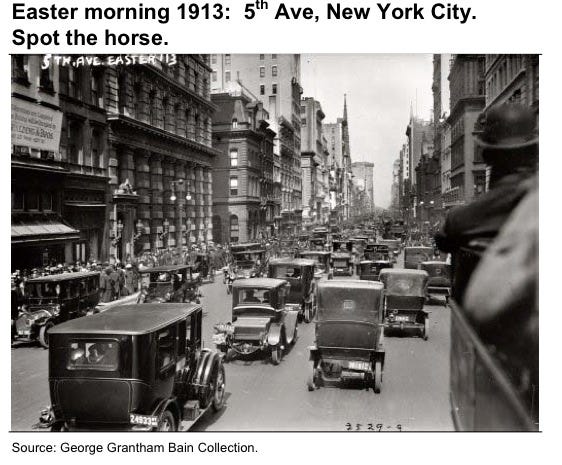The Harbor-Bosch process is the process used to convert nitrogen into ammonia through the reaction of hydrogen using metals under high temperatures. The reason for its significance is that ammonia is the key ingredient to make artificial fertilizer.
It is estimated today that three billion people benefit from this discovery. Three billion bellies filled because of artificial fertilizer. Think about that for a minute. With the Earth’s atmosphere made of 78% nitrogen, we literally have “turned air into bread“. Remarkable.
Of course, no invention goes without its problems. For instance, all that run-off goes somewhere contributing to the denigration of habitats and soils, you have leaching into groundwater, the energy required to produce 230 million tonnes of anhydrous ammonia per year (using 3-5% of the world’s natural gas). It is also contributing to higher levels of nitrous oxide in the atmosphere. Most importantly, the Harbor-Bosch process has been attributed to igniting the population bomb. From 1900, we went from 1.6 billion people to 7.7 billion today.
Indeed, “no good deed goes unpunished.” You may very be alive because of this process. What then do we do next to sustain 10 billion lives soon to inhabit Earth? What will you contribute? We can’t take for granted what has got us here AND we have to turn and face the music to solve these complicated problems on our doorstep.


